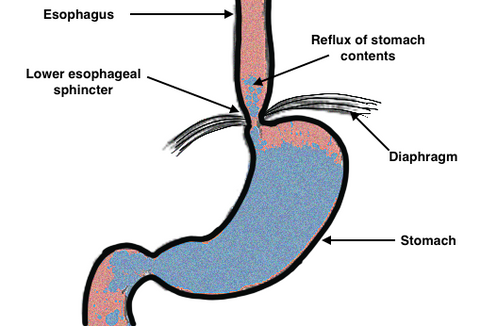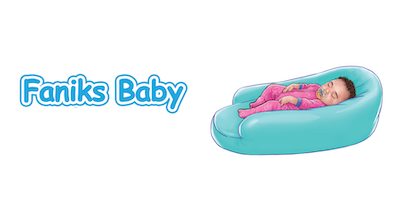Reflux

What is Reflux?
Gastroesophageal reflux is often simply called ‘reflux.’ It is the medical term for the spitting up. It occurs when stomach contents reflux or back up into the food pipe (esophagus), these contents are sometimes regurgitated or vomited out of the mouth.

Why does my baby reflux?
Reflux is a normal process that occurs several times a day in healthy infants. It occurs due to transient relaxation of the LES (lower esophageal sphincter) this sphincter or valve is present at the junction of the esophagus and stomach and prevents stomach contents from entering into the esophagus. The valve relaxes during feeding and swallowing to allow food to enter into the stomach. Also, occasional transient relaxations occur during non-feeding times to allow air to vent out from the stomach (belching) and secretions to pass down into the stomach. During these times, stomach contents may enter into the esophagus. Most episodes of reflux in healthy infants last 3 minutes, after feeding and causes few or no symptoms.

What tests are used to diagnose reflux?
In infants, diagnosis is based on reported history of baby spitting up and no tests are usually necessary unless reflux is causing symptoms. In which case it is called Gastroesophageal reflux disease.
If a child is suspected of having Gastroesophageal reflux disease, tests done depends upon what is found after a complete medical history and physical examination and may include:
-
Laboratory testing (blood and/or urine tests)
•X-ray studies to evaluate how well the infant swallows
•A procedure, called upper endoscopy, to view the lining of the esophagus
What can I do if my child has reflux?
Most spitting up is normal. You don’t have to do anything. Babies usually spit up once or twice after feedings. If your baby is spitting up more than twice you may consider decreasing the volume given at each feeding or space out your baby’s feedings. Other reflux precautions that your doctor may suggest include:
Spitting up Prevention
-
Feed less volume, but feed more frequently. You may download this free infant feeding app to help you assess the adequate feeding volumes for your baby.
-
Reflux is worse when babies lie flat; you may have to elevate the head of your baby’s bed after feedings.
-
Don’t place your baby down to sleep immediately after feeding. (Hold your baby over your shoulder or in a sitting position for about 15-20 minutes before putting your baby down to sleep.)
-
Avoid compressing your baby's tummy (abdomen) after feeding.
-
Burp your baby well after feeding.
-
Position your infant in a semi-upright or sitting position during feeding.
-
Ensure a good latch when breastfeeding to minimize the amount of air swallowed.
-
Eliminate your consumption of caffeine and tobacco when breastfeeding.
-
Try using an infant formula thickener such as rice cereal (as suggested by your doctor).
-
Try a cow's milk-free diet (as suggested by your doctor).
When should I be concerned about reflux?
When your baby is not a “happy spitter’ or has symptoms other than regular spitting up- such as coughing, being irritable, poor weight gain. Other symptoms include:
-
Consistent forceful vomiting
-
Bilious vomiting
-
Blood in vomit
-
Consistently forceful vomiting
-
Onset of vomiting after 6 months of life
-
Failure to thrive
-
Diarrhea
-
Constipation
-
Fever
-
Lethargy
These are some of the factors that your baby’s reflux may now be Gastroesophageal reflux disease and need further evaluation by your doctor.
What is the treatment for reflux?
Infants with uncomplicated reflux do not require treatment other than the suggestions outlined above in the Spitting up Prevention. Many infants with symptoms of reflux will improve, as they get older. Most infants stop refluxing after 1 year old with conservative measures alone
When reflux is causing secondary complications such as weight loss, then it is called Gastroesophageal reflux disease and this may be treated with medications provided by your doctor.

